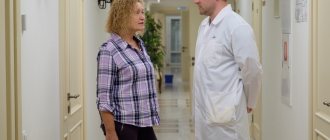Currently, autonomic neurosis has become almost widespread. This is largely due to the conditions of modern life, due to which people are in constant stress. This condition is known in clinical practice as vegetative-vascular dystonia. As a rule, more than 60% of people with minor manifestations of this disorder do not turn to specialists or were misdiagnosed, since the symptoms present in this case are usually physical in nature.
If a person realizes that his condition is worsening, and the signs of this disorder significantly affect his ability to lead a full life, he often has to consult more than a dozen doctors until possible organic damage and diseases that may have a similar symptoms.
Thus, VSD and autonomic neurosis are the same disorder, although specialists use both terms in their practice. If this disorder develops, it is imperative to undergo comprehensive treatment, since in the future the symptoms may worsen significantly.
How does the autonomic nervous system work?
To find out what autonomic neurosis is and how it appears, you need to understand how the human autonomic nervous system works.
This system, part of the general human nervous system, is very important and is responsible for connections between various body systems, blood vessels, organs, and glands. We cannot control its functioning at will. But its proper operation is important for the normal physical as well as mental state of a person.
Functions of the autonomic nervous system:
- It regulates the functioning of the entire body while a person is in a state of sleep.
- Controls the body's resources, contributing to its recovery and replenishment of energy reserves.
- Monitors the speed of metabolic processes occurring in the human body.
- Regulates the increase and decrease in tissue excitability.
- Affects a person’s mental functions and reactions.
- Affects the activity of the body.
Based on all of the above, it can be understood that if malfunctions occur in the functioning of a person’s autonomic system, various pathologies can result.
Autonomic disorders in neuroses can have two types of origin. Neurosomatic nature manifests itself in disturbances in the functioning of the genitourinary, respiratory, digestive or cardiovascular systems. In such cases, patients suffer from motor or speech dysfunction, they may experience migraines and other unpleasant symptoms of the disease. Impaired sensitivity can also be a consequence of the development of neurosis. These neuroses may also have a psychopathological nature. With this type of neurosis, problems occur in the functioning of the psyche. They can be expressed in the development of depressive disorders, the appearance of phobias or asthenia.
Taking venotonics and means to improve the condition of blood vessels
The most popular venotonics today:
- "Venarus".
- "Phlebodia".
- "Troxevasin" in capsule form.
These drugs, when taken regularly orally, improve the condition of veins and blood vessels, effectively strengthening their walls. As a result, the severity of pain in the heart area decreases, and the risk of developing heart attacks and strokes decreases.
Causes of the disease
The most common reasons that provoke the development of the disease:
- prolonged or severe stress that has become chronic;
- brain damage due to traumatic brain injury;
- various diseases of infectious origin, leaving behind consequences in the form of neurosis;
- too much physical or mental stress;
- any combination of circumstances that can cause complex psychological trauma in a person;
- improper daily routine, poor or unbalanced diet;
- features of the human psyche associated with the individual age or gender characteristics of a person. For example, hormonal changes in women during menopause;
- intoxication of the body, living in environmentally unfavorable areas and even changing time zones;
- bad habits;
- conflict situations at work or in the family, when a person has a very strong feeling of internal disagreement and protest;
- psychological trauma received by a child in childhood. This can happen as a result of the wrong behavior of adults or even violence directed against a child. It is worth noting here that the disease can also develop in young children and teenagers who grew up in dysfunctional families, as a result of insufficient attention from their parents. Children begin to behave defiantly, and parents, not realizing that this is a manifestation of a developing neurosis, do not take measures aimed at restoring the child’s health.
Treatment of vegetative neurosis
If negative symptoms are detected, the patient must undergo an examination in order to clarify the physiological cause of autonomic disorders. In the treatment of VSD, an integrated approach of several specialists is used: a therapist, a neurologist and a psychiatrist. If necessary, consultations with highly specialized specialists such as an endocrinologist, cardiologist, gastroenterologist, etc. may be necessary.
To assess the state of the ANS, special diagnostic methods and tests are used that allow one to determine autonomic tone and reactivity, as well as study the autonomic support of the body’s activities (pressure, heart rhythms, hormone levels, etc.).
The main goal of treatment of vegetative neurosis is to normalize the functioning of the ANS, for which the following conditions must be met:
- normal daily routine and regular rest;
- daily walks in the fresh air;
- proper nutrition;
- eliminating stress and anxiety, conducting psychotherapy sessions;
- exercise therapy, moderate physical activity;
- relief of negative symptoms with medications;
- good sleep;
- use of herbal and folk remedies;
- balneotherapy, therapeutic massage, electrophoresis, water procedures;
- sanatorium-resort treatment is desirable.
Drug treatment of vegetative neurosis should be carried out under the supervision of the attending physician. In cases where one of the causes of the disease is family difficulties, scandals or other problems, psychological correction of the patient is necessary. This is especially important in cases of severe neurasthenia and psychovegetative forms of neurosis.
The main groups of drugs for the treatment of VSD:
- tranquilizers - help overcome attacks of anxiety and fear (Afobazol, Stresam, etc.);
- sedative medications - help normalize sleep and the functioning of the nervous system (Persen, Novopassit);
- antidepressants - used in the treatment of depression, anxiety, constant irritability, emotional overstrain, apathy (Trazodone, Melipramine, Valdoxan, Prozac, etc.);
- neuroleptic drugs - used in severe cases of organ neuroses (Teraligen, Eglonil);
- means for strengthening blood vessels (nootropic) - improve the brain’s resistance to stress, help normalize brain activity (Phenibut, Cerebrolysin, Piracetam, etc.).
How to diagnose autonomic neurosis?
The difficulty in diagnosing vegetative neurosis is that it cannot be determined by any special signs. This is explained by the fact that with this disease, pathology can occur in any of the organ systems. This disease is characterized by a number of clinical signs. And, interestingly, each of these signs is characteristic of a particular type of disease. The doctor has to conduct a full examination to rule out the disease whose symptoms he is observing. And only after excluding specialized pathologies and after examining a gastroenterologist, cardiologist, neurologist, ophthalmologist, pulmonologist and others, can a correct diagnosis be made. In other words, only after the doctor establishes that, although there are signs of gastritis, the patient does not have gastritis itself, can he make a diagnosis of vegetative neurosis.
Diagnostic methods
Determining the disease requires consultation with doctors of various specializations, as well as a thorough examination of the patient. What events are held:
- Autonomic disorders are determined in conversation with the patient using a special questionnaire.
- Somatic diseases are excluded based on patient complaints.
- Find out how difficult life situations and the occurrence of vegetative symptoms are connected.
- Clarify how autonomic disorders occur.
- Determine whether there are mental symptoms: sleep disturbances, deterioration in emotional mood, changes in appetite, fatigue.
For examination the following is prescribed:
- ECG;
- MRI;
- Dopplerography of blood vessels;
- computed tomography;
- blood test for hormones;
- Ultrasound of the heart.
Differential diagnosis is aimed at excluding diseases with similar symptoms. For example, anxiety states appear with increased thyroid function, and cardialgia syndrome is confused with angina pectoris.
If the heart malfunctions, the patient undergoes a specialized examination. This is a necessary measure when diagnosing this syndrome. At the same time, the examination should be understandable and uncomplicated for patients. Otherwise, patients will worry and come up with a catastrophic diagnosis.
Autonomic neurosis symptoms that appear most often
In most patients, the disease manifests itself with completely different symptoms and even entire groups of them. In each individual case, the doctor must thoroughly study all the syndromes that arise during the development of the disease, determine the real state of the person’s physical and mental condition, and only then begin a course of treatment. All syndromes are conditionally divided into groups, each of which has its own symptoms:
- Vegetative-cutaneous syndrome. This is very dry or excessively moist skin in the patient. She is too sensitive, with itchy skin.
- Vegetative-trophic syndrome. Sometimes it manifests itself in the appearance of trophic ulcers. Most often, ulcers occur on the lower back or extremities. Sometimes in the form of muscle atrophy or tissue nutritional disturbances.
- Vegetovascular syndrome. It manifests itself in a decrease or increase in blood pressure, which occurs several times a day. The patient may experience severe and prolonged headaches, often for no apparent reason, arrhythmia and tachycardia. Some patients complain of sudden attacks of nausea and dizziness.
- Vegetative-allergic syndrome. With this syndrome, a person experiences erythemal skin rashes, allergic rhinitis, chronic runny nose, and even nosebleeds. Food allergies often occur to various foods that were previously accepted normally by the body.
- Vegetative-visceral syndrome. It often causes a feeling of lack of air, shortness of breath and difficulty swallowing. Patients often complain of pain in the heart area, diarrhea, constipation, and a large amount of saliva.
- Hypochondriacal syndrome. It manifests itself in the fact that the patient constantly suspects that he has various, often incurable, diseases, is overly concerned about his health, and experiences severe anxiety even with a slight illness.
- Phobic syndrome. Very often it occurs in combination with other syndromes. Expressed in fears and phobias of a neurotic nature that arise without reason. Its complexity lies in the fact that the patient understands that he is experiencing fear without proper reason, but he cannot get rid of it himself.
Patients suffering from this disease most often exhibit not one syndrome, but two or more at once. Therefore, comprehensive diagnostics is necessary to exclude actual organic damage to organs and systems. This is necessary because pain that occurs in the heart area, for example, caused by vascular neurosis, does not require drug treatment. Such pains are also called false pains. They are often accompanied by a feeling of a sinking heart or rapid heartbeat. Patients are very worried when having such symptoms and, accordingly, suspect that they have a serious heart disease.
Making the correct diagnosis
After analyzing a person’s complaints, the doctor must exclude the possibility of organic pathologies. The variety of symptoms and their instability, as well as dependence on psychogenic factors, allows one to suspect autonomic neurosis. The specialist must determine which organ is more responsive to disturbances.
It is also very important to distinguish pathology from visceropathies. Psychogenic neurotic reactions may appear against the background of symptoms of autonomic neurosis. To determine the nature of the disease, the doctor examines the reflexes. Asymmetric reactions are often observed.
To assess the excitability of the sympathetic nervous system, a specialist conducts a dermographism study. This term is understood as a local response to streak irritation of the skin. As a result, the skin may become red or pale.
The pilomotor reflex is tested by temperature or pain stimulation. If the answer is positive, a local or general reaction is observed, which is characterized by the appearance of so-called goose bumps.
The doctor may also evaluate the solar plexus reflex. To do this, he presses on the epigastric area. When pain occurs, we can talk about increased excitability of the nervous system.
Psychovegetative syndrome in children
In childhood, this disease is characterized by a combination of autonomic and psychoemotional disorders that arise due to various pathologies of the nervous system. The development of the disease is facilitated by instability of such vegetative parameters as temperature and blood pressure, as well as poor tolerance of mental and physical labor. The syndrome is quite often observed during hormonal changes during adolescence. The disease is treated with medicinal and non-medicinal methods.
Features of the manifestation of psychovegetative syndrome
This pathology is manifested by heart ailments, headache, increased sweating, nausea, dizziness, heaviness in the stomach, difficulty urinating, and sensitivity to cold. All this is accompanied by an anxious, depressed and irritable state, internal restlessness, various phobias, apathy and insomnia. A thorough examination shows that all organs are absolutely healthy, and all symptoms are false.
Complex of medical care
Reflexology, physical therapy and massage are the main ways to treat the symptoms of the syndrome. Spa treatment and physiotherapy are used. Breathing exercises and antidepressants help relieve symptoms of the disorder. The whole body is strengthened. A healthy lifestyle and hardening are important.
There may be a need for psychotherapy, which will help to realize that the disease is in the past and there is no threat to life. Ion therapy and sedatives also help in the treatment process.
Psychovegetative syndrome does not have serious consequences as such, since most often no medications are used for its treatment. The only complication of the disorder can be considered the constant risk of development and recurrence of the disease.
Preventive measures
As a preventative measure, it is necessary to strictly adhere to a healthy lifestyle.
You should ensure proper daily rest and at least 8 hours of sleep. Proper nutrition, rich in vitamins and minerals, is also necessary. You should refrain from eating smoked meats, pickles, coffee, tea, chocolate and spices. They excite the nervous system, which is extremely undesirable.
The patient's positive attitude is important. He must think positively, concentrate on the pleasures of life and positive emotions.











